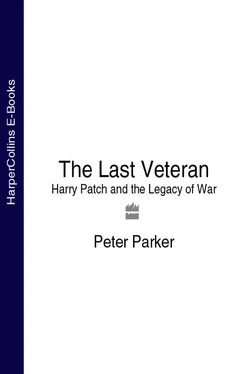The British people were suffering in their homes as well as in the workplace. German submarine raids caused massive losses among the merchant marine, which meant that there was a lack of imported goods, so food prices soared. Coal rationing was introduced in October 1916, and in December of that year a Food Controller was appointed as part of the newly formed Ministry of Food. People were encouraged to monitor their own consumption, but rumours in 1917 that Britain’s food supply was all but exhausted led to panic buying, after which rationing was introduced: sugar in December, followed by butter, meat, jam and tea.
It was one thing to eat less for your country in times of war, but rationing was no more over by Christmas 1918 than the war had been in 1914, and its continuation long after the Armistice caused considerable resentment. Victory may have been greeted with jubilation, but it did little to calm the industrial and social unrest that pervaded the country. A more general imbalance between supply and demand in goods was not much helped by the fact that there was no immediate return to peacetime conditions in factories either. The Munitions of War Act had obliged many manufacturers to adapt their factories for the production of vital armaments, and it would take time to reconvert production lines so that they could return to making the goods they produced before the war. The Defence of the Realm Act remained in place, and the gulf that had opened up during the war between the Western and Home Fronts, fuelled by mutual incomprehension and, on the part of the serving men, a degree of hostility towards those who for whatever reason had not joined up, was not healed by peace. Soldiers at the front had resented the fact that the jobs from which they were absent had been taken over by those who had stayed at home rather than join them on the battlefields. It was not only ‘shirkers’ who had usurped them in the workplace: women had been absorbed into the overall workforce in huge numbers and, newly emancipated, could hardly be expected to return to hearth and home the minute the war was over – although many of them did.
‘The unity of the nation which has been the great secret of our strength in war must not be relaxed if the many anxious problems which the war has bequeathed to us are to be handled with the insight, courage, and promptitude which the times demand,’ Lloyd George declared, and he decided to call a general election for 14 December. He felt that a new parliament ‘possessed of the authority which a General Election alone can give it’ would be needed ‘to make the peace of Europe and to deal with the difficult transitional period which will follow the cessation of hostilities’. Just how difficult that transitional period would be soon became apparent.
Often referred to as a ‘khaki election’ because it took place immediately after a war, the 1918 general election might equally have been dubbed a ‘petticoat’ one, since it was the first in which women – at any rate, women property-owners over thirty – had the vote. With the massive losses suffered in the war, the women’s vote was more significant than its legislators might have envisaged. Given that many of those in khaki were still on active service abroad and that many women were in mourning for a husband, son, father, brother or fiancé, it must have looked like a ‘black’ election as much as a khaki one at the polling booths. The shadow of the war certainly loomed over the election in Nottingham, where now redundant shell cases were used to make up the shortfall in ballot boxes. It was also the first election in which men who were not property-owners were allowed to vote, but they had to be twenty-one. Many former servicemen like Harry Patch, who was twenty when the election took place, discovered that while they were deemed old enough to be sent off to fight for their country, they were still considered too young to vote. The result of the election was an overwhelming victory for a coalition chiefly composed of Liberal and Conservative members under the renewed premiership of Lloyd George.
It was all very well to win a general election, but Lloyd George now needed to lead the country into a post-war future with all its attendant problems. Making the peace in Europe would prove to be a great deal easier than maintaining it at home. In his Special Order of the Day for 12 November 1918, the Commander-in-Chief General Haig had assured his victorious but exhausted troops that ‘Generations of free peoples, both of your own race and of all countries, will thank you for what you have done’. Similarly, the Liberal Party’s election manifesto had promised: ‘In the field of creative reform at home, social and industrial – our first duty is owed to those who have won us the victory and to the dependants of the fallen. In the priorities of reconstruction they have the first claim, and every facility should be given them not only for reinstatement, and for protection against want and unemployment, but for such training and equipment as will open out for them fresh avenues and new careers.’ Unsurprisingly after such promises, those returning to Britain from the battlefields expected to find it the ‘fit country for heroes to live in’ that Lloyd George’s government had pledged.
Getting back to Britain in the first place was often difficult: one of the principal complaints among the armed forces was the slow pace of demobilisation. An end to hostilities did not mean an immediate end to war service, and even soldiers who had been in Britain on 11 November 1918 often had a long and frustrating wait before they returned to Civvy Street. The army had been very quick to recruit soldiers but less swift to let them go. ‘It had taken three days to get me into uniform,’ Harry Patch recalled, ‘but it would be five months before I got out of khaki and out of the army.’ The government’s decision to give priority to men whose particular skills were required to get the wheels of industry turning once more was particularly unpopular, chiefly because many of these so-called ‘key men’ had been considered too important to send to France and had been allowed to enlist only when the fighting forces had been seriously depleted. This meant that those who were last in were often first out – a policy that did not find favour among those who had been serving for much longer periods. Guy Chapman remembered the anger caused when the first person from his battalion to be demobbed was a man who had seen only fourteen weeks’ service: he was a miner and therefore needed back in England. This demobilisation by individual rather than by battalion was logistically complex and destroyed the sense of group loyalty that had kept men going during the war. Under pressure, the scheme was eventually abandoned, but while in force it led to mass discontent.
The discipline that had carried many of the soldiers through almost unimaginable hardships at the front seemed merely irksome now that the war was over, and it began to break down. On the Isle of Wight Harry Patch’s company particularly resented being ordered about on parade and taken for route marches by a peacetime officer who had risen from the ranks. The men finally refused to turn out for this officer, even when he challenged them with a revolver. They subsequently returned to talk to him with loaded weapons, and when he cocked the trigger of his revolver, the men responded by pulling back the bolts of their rifles. ‘Now, you shoot, you bugger, if you dare,’ one of the men shouted, and the officer very sensibly backed down. A brigadier was sent to Freshwater to sort out what had in effect been a mutiny. He listened to both the officer’s account and the men’s grievances. One man complained that they had joined up for the duration but were still waiting to be demobilised and return to their jobs three months after hostilities ceased. The brigadier, perhaps fearing that disaffection among the ranks would spread, gave orders that the company be excused parades. Thereafter they only did fatigues – little more than keeping the camp tidy – until they were demobbed. ‘We had decided ourselves that we were more or less civilians, and that army rules no longer applied to us,’ Patch recalled.
Читать дальше












